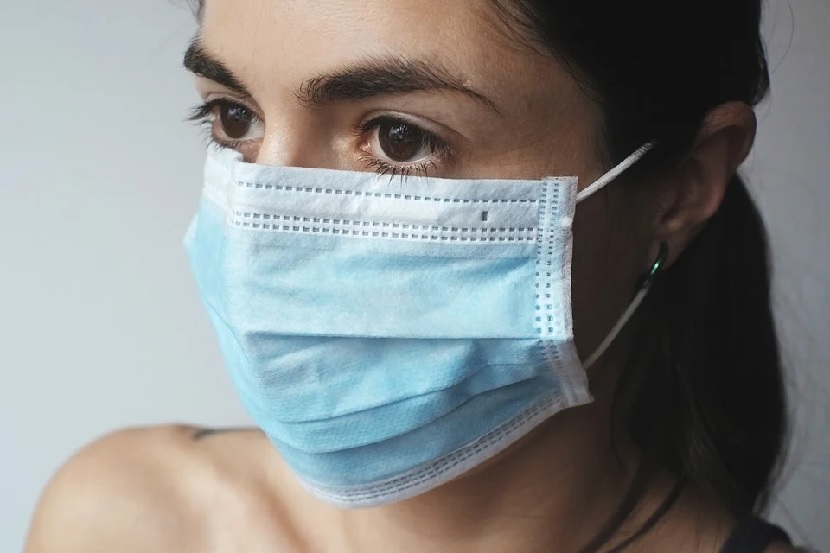“The amount of misinformation on the Internet – especially on Facebook and especially during times of crisis – is staggering.” — Benjamin Franklin
We’ve returned to work here, although anyone who wishes to continue to work from home may. People stay separated, maintaining social distancing. The chairs in the break room are up on the tables. We disinfect doorknobs and light switches daily. We’re going through antibacterial soap by the bucket. There are hand sanitizer dispensers throughout the office (although everyone here understands that soap and water are superior to hand sanitizer.)
And we wear masks.
We’ll continue to wear masks until this pandemic has passed and there is a vaccine against SARS-CoV-2, the virus that causes COVID-19.
Misinformation on the Internet
Normally, I blog about process safety, but an angry buzz in the office alerted me to an issue that needs to be addressed. Some posts on the internet were apparently getting a lot of attention in the circles of friends of my younger colleagues. Posts that falsely stated that not only were masks not doing any good in this pandemic but were going to make everyone sicker and more vulnerable to COVID-19. They asked that I write about the misinformation.
Here goes.
Why Do We Wear Masks?
COVID-19 is a respiratory disease. The SARS-CoV-2 virus invades cells in the upper respiratory tract and lungs. Once inside the cell, a virus directs the cell to produce millions of copies of itself. In the lungs, the virus attaches itself with those spikes that have become all too familiar. The body’s immune system mounts a defense. For most of us, we survive this defense, many without symptoms at all, although in the meantime our bodies have become SARS-CoV-2 factories. For some, though, the body’s defense itself is enough to make parts of the lung collapse, causing pneumonia, and for some of those, multiple organ failure and death.
When the pandemic first started, there was a focus on masks and other PPE for health care workers, in an effort to prevent infection in the first place. That is still the concern for health care workers. The masks are there to keep the virus out.
For the rest of us, though, the purpose of the mask is not to keep the virus out—although it is certainly all right if it does—but to keep from launching the virus at those around us if we happen to be infected. A mask sets up a barrier, an obstacle course that slows down the mist of droplets that spray from our nose and mouth whenever we sneeze or cough, or talk or sing, or breathe. The slower that mist is, the sooner it drops harmlessly to the ground, where the virus can die from exposure.
Unless you are working in a medical setting, you are not wearing a mask to protect yourself. Instead, you are wearing a mask to protect others from yourself, on the chance you are infected and don’t know it.
What About Vented N95 Masks?
The “N95” designation means that the mask has been approved by NIOSH as effective in removing 95% of particles down to a certain size (a size that includes viruses). No mask, no filter of any sort, is 100% effective against all particles of all sizes. But the fewer that get through, the lower the probability that one will stick and infect you. Something that only removes 85% of the same particles is not as good as something that removes 95% of the particles, but it is considerably better than nothing.
As for the vent, it’s true that outbreathing is unfiltered. Still, depending on the design, the vent directs your breath away from the faces of those you are talking to.
An N95 mask is designed to protect the wearer. It does. To a lesser extent, it also protects those around the them. N95 masks are more expensive than other masks, though, so it certainly makes sense to leave them for those who need the protection from exposure.
What About Surgical Masks?
Do surgical masks stop the inflow of viruses? Yes, mostly. Do they stop the outflow? Yes, mostly. Do they slow down particles leaving your respiratory tract? Yes, definitely. Do they get clogged? Sure, like all filter media, surgical masks can become clogged when exposed to a sufficiently high particle burden for long enough. Like, when you are tuck-pointing and generating clouds of silica dust through which there is no visibility. Are we talking about clouds of coronavirus through which there is no visibility? No! Clogging is not an issue when wearing a surgical mask
Remember, surgeons don’t wear surgical masks to protect themselves from infection by their surgical patients. They wear surgical masks (and gloves and gowns) to protect their surgical patients from any infection the surgeon may bring to the surgical theater.
What About Cloth Masks?
Do cloth masks filter out viruses? No. Even when they have a HEPA filter insert? Well, that helps, but not enough to justify their use. Then why wear them? Because they set up a barrier, an obstacle course that slows down the mist of droplets that spray from our nose and mouth whenever we sneeze or cough, or talk or sing, or breathe. These slower mist droplets don’t go as far, so are less likely to infect someone.
Please, Try This at Home
If you need convincing, try an experiment at home with a couple of friends. Get out your garden hose. It’s getting warm, so it’s perfect time for this. Set it on jet and notice how far the spray goes. Now have your friends hold a bandanna by its four corners and aim your spray through the bandanna. Does the water get through? Sure. How far does the spray go now? Notice that even though some of the water still gets through the bandana, some is stopped right there. More importantly, though, is that what does get through doesn’t go as far.
Now try it with two bandanas. Then a t-shirt. Or a towel. You’ll see that more layers, though not perfect at stopping the flow, are more effective at slowing how far the water goes. That is what we are asking of our masks: slow the spray down so the virus doesn’t get as far.

Photo credit: Victoria Islas on Pixabay
Why Pay Attention to This?
So, what is my stake in all this? I’m not invested in mask production. I don’t enjoy wearing a mask. (They are, as their detractors point out, inconvenient and uncomfortable.) Instead, I am a safety professional. I started my career in the chemical process industries in 1977 with Union Carbide. My early career focused on filtration, membrane separation, and microcontamination control. Although I wasn’t working for Union Carbide in 1984 when the catastrophe in Bhopal occurred, I was profoundly affected by it, shocked by the knowledge that what I did and said as a process engineer could potentially result in the deaths of thousands. I began my transition from process engineer to process safety engineer then, and by 1992, when OSHA promulgated the PSM standard, it was my passion and became my vocation.
I became an OSHA-authorized safety trainer for both the 10-hour and 30-hour General Industry safety training. (OSHA does not permit the use of the term “certified” in association with their training programs, and anyone who does is violating OSHA regulations.). I left my job in a corporate setting and started Bluefield Process Safety in 2008, because I wanted to make the world a safer place. In 2009, I joined the faculty of Missouri University of Science Technology where I teach two graduate level courses, one on Safety Engineering Management and one on Process Risk Management. For what it’s worth, I’ve got a lot of letters behind my name. Then again, I also drive a 2006 Toyota Corolla. What’s my stake in all this? It’s not to get rich or support a political agenda. No, I just want to make the world a safer place.
Don’t Take My Word for It
The best defense against misinformation is to understand where it is coming from and what interest that source has in you believing what they are telling you. Wikipedia, for instance, is routinely dismissed as unreliable, but I have found it to be a good source of information for anything that is uncontroversial. When I want to know the flash point of a particular compound, I’m completely comfortable with Wikipedia as my source. It’s easy and reliable, and who has an interest in promoting misinformation about flash points?
People are entitled to their own beliefs, but not to their own facts. But even with the same set of facts, we can assign different value to the facts at hand. When drawn from the same set of facts but weighted differently, differing conclusions and beliefs can result that are equally sincere. But when conclusions and beliefs come first, which then drive the value we give to some facts and drive us to ignore other facts, that is at best, irrational, a victim of confirmation bias, and at worst, a deliberate effort to mislead in the name of ideology.
If you’re just looking for an excuse to not wear a mask, nothing I can say will convince you otherwise. The excuses are out there. However, if you really care about the well-being of those around you, you will wear your mask. Don’t just take my word for it, or of any random blogger – the Internet let’s us say anything. Check it out for yourself. Do what makes sense. If you’re honest and decent, no matter your politics, you’ll wear a mask for the benefit of others.

Everybody should read this. Wearing a mask should be part of your responsibility to other humans rather than a political statement.
Find other ways to make political statements, please.
I also liked the comment that we are all entitled to our own opinions, but not our own facts.